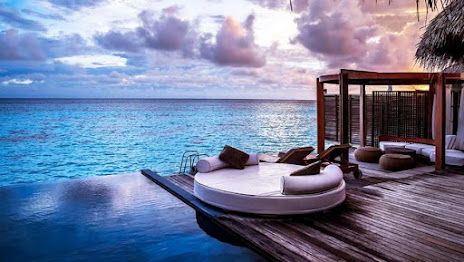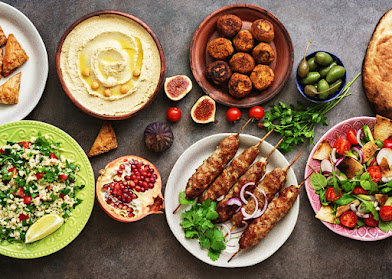Luxury Travel Market Development Overview, Growth Strategies, Latest Technologies, and Revenue Forecast 2023 to 2030
Luxury travel refers to a high-end and exclusive form of travel that focuses on providing travelers with exceptional experiences, premium accommodations, personalized services, and unique amenities. It caters to individuals who are willing to indulge in luxurious surroundings, exquisite dining, and unparalleled service during their journeys.
Luxury travel goes beyond just staying at high-quality hotels or resorts. It encompasses various aspects of travel, including transportation, accommodation, dining, activities, and entertainment, all tailored to meet the specific preferences and desires of the affluent traveler. Some common features of luxury travel include:
Luxury Accommodations: Upscale hotels, resorts, private villas, or even luxury cruise ships offer lavish accommodations, often equipped with top-notch amenities, stunning views, and personalized services.
Personalized Service: Luxury travel focuses on providing personalized attention and exceptional service to cater to the individual needs and preferences of each traveler. This may include dedicated butlers, concierge services, and 24/7 support.
Fine Dining: Gourmet dining experiences are an integral part of luxury travel. Michelin-starred restaurants, private dining options, and culinary adventures that highlight local flavors and ingredients are often sought after by luxury travelers.
Exclusive Experiences: Luxury travel offers unique and exclusive experiences that are tailored to individual interests and preferences. This may include private guided tours, behind-the-scenes access to attractions, VIP event tickets, or immersive cultural experiences.
Wellness and Spa: Luxury travel often includes wellness-focused amenities such as high-end spas, fitness centers, and wellness retreats. These facilities aim to provide relaxation, rejuvenation, and wellness experiences for travelers.
Premium Transportation: Luxury travelers often choose private jets, first-class air travel, chauffeured vehicles, or luxury train journeys to enhance their travel experience and ensure comfort and convenience.
Adventure and Exploration: Luxury travel doesn't limit itself to relaxation and indulgence; it also offers adventurous activities such as safaris, luxury cruises to remote destinations, helicopter tours, and exclusive access to natural wonders.
Privacy and Exclusivity: Luxury travel emphasizes privacy and exclusivity. Private islands, secluded resorts, or VIP access to popular attractions allow travelers to enjoy their experiences away from crowds and in a more intimate setting.
Major players operating in the global luxury travel market include Abercrombie & Kent USA, Absolute Travel, Inspiring Travel Company, TCS World Travel, TÜ ELITE, Cox & Kings Ltd., Travcoa, Micato Safaris, Scott Dunn Ltd., Kensington Tours Ltd., and Butterfield & Robinson Inc.
Here are some key points about the luxury travel market:
Definition: Luxury travel is characterized by high-end accommodations, luxurious transportation options, personalized services, gourmet dining, and access to exclusive activities and destinations. It often includes stays at luxury hotels, resorts, private villas, and yachts.
Target Audience: Luxury travelers are typically individuals or families with a high disposable income, seeking exceptional experiences, exclusivity, privacy, and a high level of comfort and service. They value unique cultural encounters, personalized itineraries, and opportunities for relaxation and rejuvenation.
Growth and Market Size: The luxury travel market has been growing steadily in recent years. According to reports, the global luxury travel market size was valued at around USD 865 billion in 2019 and is expected to reach over USD 1.2 trillion by 2027. The increasing number of high-net-worth individuals and rising demand for unique travel experiences have contributed to this growth.
Destinations: Luxury travelers often seek out destinations that offer pristine natural landscapes, cultural heritage sites, exclusive resorts, and access to unique experiences. Popular luxury travel destinations include tropical islands, exotic safari locations, luxury ski resorts, historical cities, and private retreats in secluded locations.
Experiences and Activities: Luxury travel experiences can vary widely, depending on individual preferences. Some common activities and experiences include private guided tours, gourmet dining experiences, spa and wellness retreats, yacht or cruise vacations, wildlife safaris, adventure sports, and cultural immersions.
Luxury Hospitality: Luxury travelers expect exceptional hospitality and personalized services. Luxury hotels and resorts often offer high-end amenities such as spacious suites, private butlers, exclusive lounges, fine dining restaurants, spas, and wellness centers. These properties focus on providing a seamless and memorable experience for their guests.
Luxury Travel Agencies: Travel agencies specializing in luxury travel play a crucial role in curating bespoke itineraries and providing personalized services. These agencies have extensive knowledge of luxury destinations, accommodations, and experiences, ensuring that the needs and preferences of luxury travelers are met.
Sustainability and Wellness: Increasingly, luxury travelers are seeking sustainable and wellness-focused travel experiences. They value eco-friendly practices, local community engagement, and wellness activities such as yoga retreats, meditation sessions, and spa treatments.
Technological Advancements: Technology has also influenced the luxury travel market. Online platforms and mobile apps provide luxury travelers with easy access to information, personalized recommendations, and seamless booking processes. Virtual reality (VR) and augmented reality (AR) are also used to showcase destinations and accommodations before making a booking.
Post-COVID-19 Impact: The COVID-19 pandemic has had a significant impact on the luxury travel market, with restrictions on international travel and changes in consumer behavior. However, as travel restrictions ease, luxury travelers are expected to gradually resume their travel plans, seeking exclusive and safe experiences.
Overall, the luxury travel market continues to evolve and cater to the desires and demands of affluent travelers who seek exceptional experiences, personalized services, and exclusive accommodations.



.png)
Comments
Post a Comment